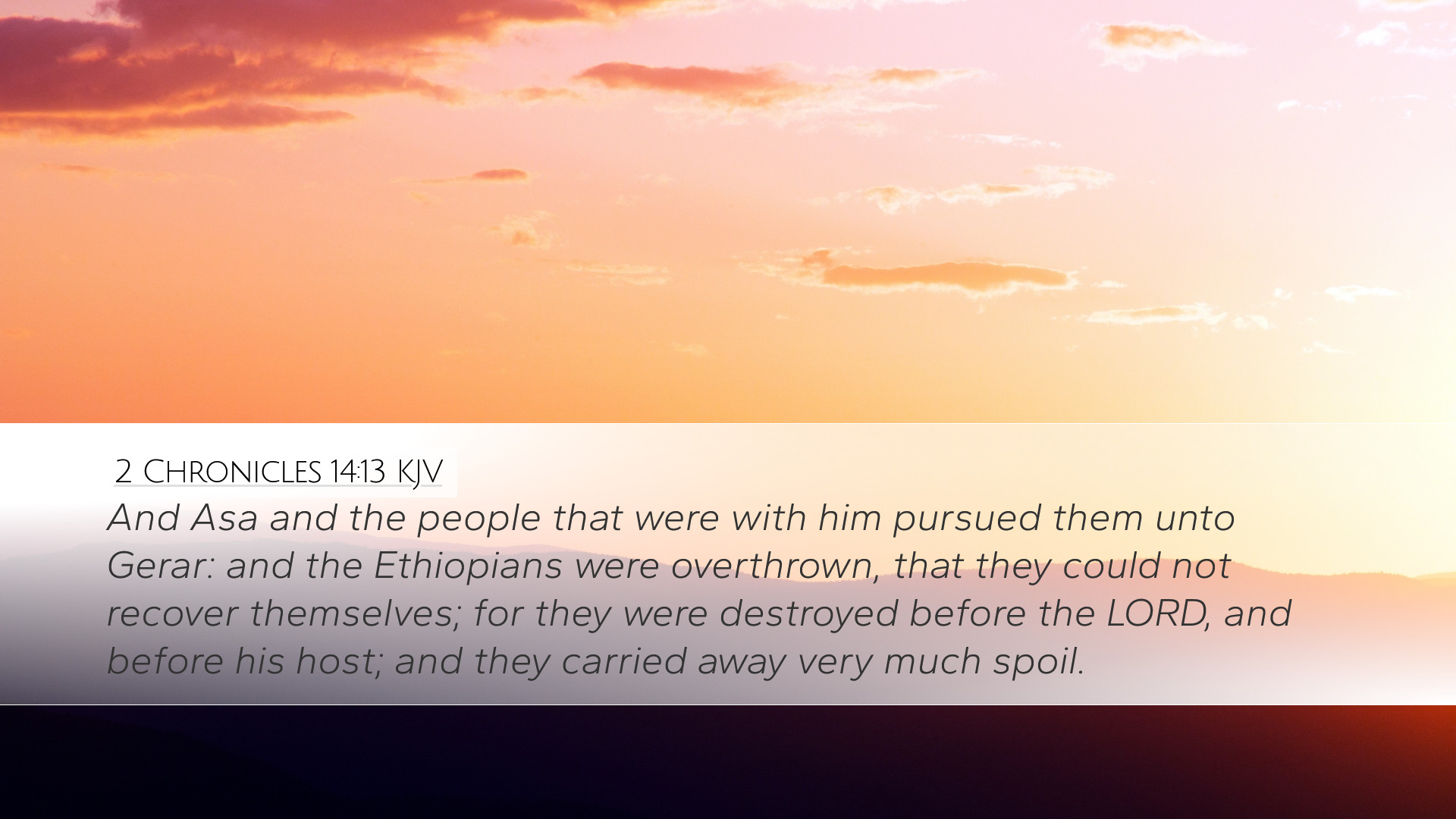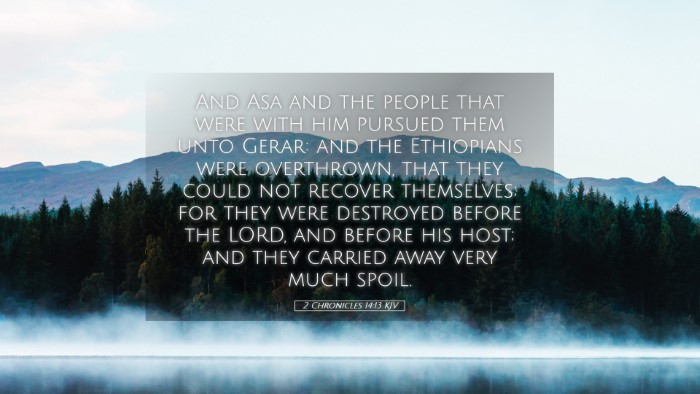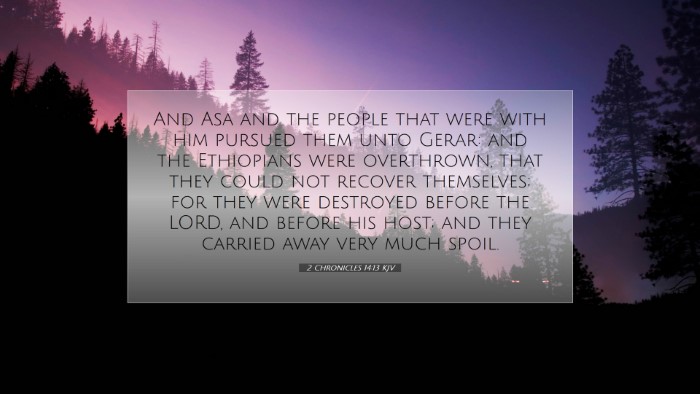Commentary on 2 Chronicles 14:13
2 Chronicles 14:13 states:
"And Asa and the people that were with him pursued them unto Gerar: and the Ethiopians were overthrown, that they could not recover themselves; for they were destroyed before the Lord, and before his host." (2 Chronicles 14:13, KJV)
Context and Background
This verse falls within a larger narrative about King Asa of Judah, whose reign is characterized by a series of reforms and military victories. Asa's story illustrates the themes of faithfulness to God, the importance of relying on divine assistance, and the consequences of turning away from God.
Summary of Key Commentaries
1. Matthew Henry's Commentary
Matthew Henry emphasizes the significance of Asa's leadership during a crisis. He notes the following:
- Asa's Faith: Asa displayed great faith by seeking God in times of trouble, leading his people to rely on God's strength.
- The Divine Victory: The overthrow of the Ethiopian army signifies God's direct intervention, showcasing the theme that God fights for His people when they put their trust in Him.
- The Pursuit: The pursuit to Gerar illustrates the determination of Asa and his men to completely defeat their adversaries, not just to win a battle but to ensure that the threat would be eradicated.
2. Albert Barnes' Notes
Albert Barnes provides an insightful examination of the implications of this victory:
- Military Strategy: Barnes points out Asa's strategic decisions in the midst of battle, highlighting his leadership qualities.
- God's Role in Warfare: He elaborates on the idea that the overthrow of the Ethiopians was not merely due to human effort but was a significant act of God, emphasizing divine sovereignty in warfare.
- Aftermath: The complete destruction of the enemy serves as a metaphor for spiritual warfare, where complete reliance on God leads to triumph over sin and adversity.
3. Adam Clarke's Commentary
Adam Clarke provides a theological reflection on the verse:
- Symbolism of Gerar: Clarke discusses Gerar as a place representative of victory and divine help, noting that it signifies the broad reach of God's deliverance.
- Spiritual Lessons: He suggests that the verse teaches believers about the importance of faithfulness and the need to pursue ongoing spiritual victories in their lives.
- God's Assurance: Clarke stresses that the assurance of God's presence and aid is foundational for every believer, especially during times of contention or crisis.
Theological Implications
2 Chronicles 14:13 not only recounts a historical event but serves as a theological foundation for several key beliefs:
- Faith and Trust: The verse invites pastors and theologians to reflect on the nature of faith in action and how reliance on God shapes leadership in tumultuous times.
- Divine Sovereignty: This account serves as a reminder that God's power can sway the outcomes of earthly conflicts, reinforcing the belief that God is actively involved in the affairs of His people.
- Holistic Victory: The complete destruction of the enemies indicates that through faith, believers are called to pursue total victory over adversarial forces, whether they be social, spiritual, or moral in nature.
Conclusion
The study of 2 Chronicles 14:13 through the lens of various commentaries provides a multifaceted understanding of Asa's character, the nature of God’s intervention, and the broader spiritual implications for believers. Pastors, students, theologians, and Bible scholars are encouraged to draw from Asa's experience as a model for spiritual leadership and reliance on God in every situation, emphasizing the importance of both faith and action.


